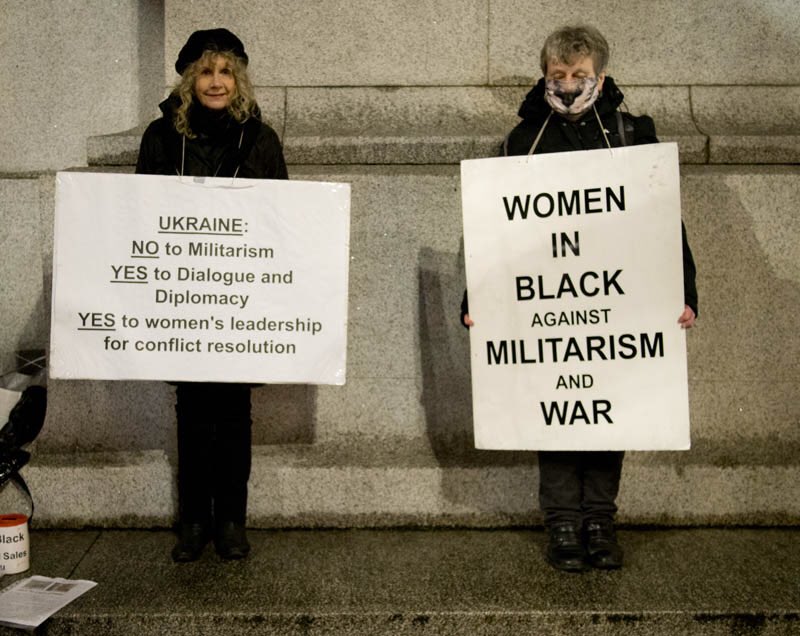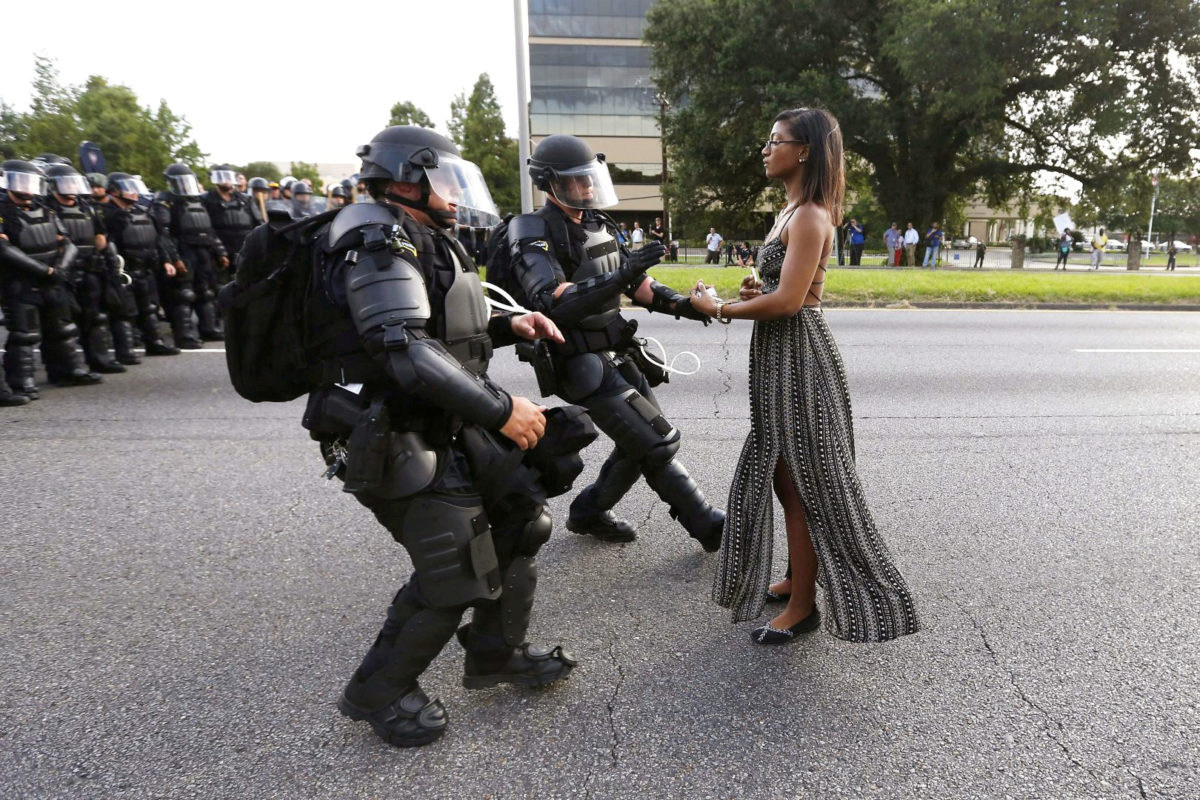In our world today, the significance of the human security and peace paradigm draws heavily on “militarization” – an ideology of power normalizing the use of violence and aggression as a means to address conflict. These ideological manifestations of militarism have advanced militaristic values such as – deliberate and indiscriminate use of physical force, acceptance of hierarchies, and using violence as a legitimate way of resolving conflict in the social, political, and economic domains.
Military values, ideology, and pattern of behavior achieve a dominating influence on the political, social, economic, and external affairs of the state, and as a consequence, the structural, ideological, and behavioral patterns of both the society and the government are ‘militarized.’
The World Council of Churches
The influence of militarization has become a part of a socio-political process that has penetrated all facets of society. Although the armed forces, war, and military power are considered to be a “male-centered space”, the military culture has particularly affected women’s well-being both in the public and private domain. In the socio-economic sphere, militarisation takes over huge state expenditure while neglecting basic civilian investments such as social services, public health, and education. In the private domain, militarism perpetuates the stereotypical character of women as subservient, inferior, and in need of protection. These ideological manifestations of militarism encourage us to be feminist conscious and integrate a gender perspective in challenging militarism’s underlying ideology.
Militarism and subordination of women, are constitutive parts of the same “social totality” of power and inequality.
C. Cockburn, International Feminists Journal of Politics

As Curious Feminists, Why Investigating Gender is Crucial?
The key to control is to define women as creatures marginal to the military’s core identity, no matter how crucial in reality are the services they perform (and the symbolism they provide) to the smooth operations of the military. By contrast, when women begin to act in their own interests, military commanders suspect that their control is slipping.
Cythia Enloe, Maneuvers: The International Politics of Militarizing Women’s Lives.
Feminist scholar, Cynthia Enloe considers militarism to be – “strongly connected to gender relations, where the militaristic beliefs extensively institutionalize patriarchy by strengthening a masculinized social order.” According to Enloe, “Militarism stems from patriarchy, and patriarchy reinforces and legitimizes the effect of militarization”. This understanding determines that there is an interconnection between the militaristic ideology and patriarchy, which imposes rigid ideas of gender roles, categorizes them into feminine and masculine, and lays the foundation of discrimination and inequality. The military values further foster the concept of “manhood” and justifies the supremacy of “maleness” in the social hierarchy, instructing them not to exhibit “feminine” attributes like being sentimental, emotional, or tender.
Stereotypical masculine attributes like bravery, aggressiveness, and endurance are sought, while stereotypical feminine traits like nurturing, emotion, compassion, and devotion are disparaged and screened out. These extreme military values represent that – good things are gallant and manly, while feminine traits are unfavorable and despicable. Although combatants are encouraged to invoke solidarity among each other and be loyal to their “comrades in arms”, this is not based on trust and community; but rather on power, authority and dominance. Thus, militarism resists justice and equality between sexes as it relies on demeaning women and considers their existences solely as a means of sexual objectification or as victims in need of protection. This unexplored gender perspective of militarism encourages us to strongly advocate for feminist curiosity and explore different dimensions of relations between women and militarization.
Economic Impact of Militarization on Women
In our work at the UN and in campaigns, we believe that demonstrating the connections between money, masculinities, and militarism is one way to challenge the resistance to disarmament and the promotion of militarism. Among other things, we seek to articulate and highlight the injustices of exorbitant military spending, industrial and political investments in weapons production and trade, assumptions about gender, and specific impacts of weapons and armed conflict on women.
Money, Masculinities, and Militarism. By Ray Acheson
Countries spend a considerable amount of money on weapons, arms, and ammunition, bringing attention to the huge military expenditure. This excess spending on defense and military significantly contributes to structural violence, which exists due to unequal social spending, and causes civilians to suffer as a result of their inability to meet their basic necessities. These military spending particularly affects women by creating gender inequality in access to labor and resources and making them more vulnerable. Therefore, there is a stringent need to bring attention to the costs of militarism by uncovering state defense budgets and military expenditures. Actively advocating for the realignment of the defense expenditure and the exposure of military spending to social spending can help to open up discussion on the structural violence against women and the uneven economy due to militarization.
Militarism and Violence Against Women
In a militarized society, the use of force, aggression, and violence is normalized and considered an admissible way of solving the conflict. But this ideological manifestation of militarism overwhelmingly affects women in their interpersonal sphere as well. Militarization is based on the fundamental value of dominance and ascendency over the other, glorifying hegemonic masculinity while, trivializing femineity, as a result, women inevitably become the “other”. There is also an explicit link between militarization and violence against women. The high rate of intimate partner violence and domestic abuse in military families conclude that militarization is more conducive to domestic violence than any other occupation. The core military values like aggression and authoritativeness condition the soldiers into becoming more violent, which spills over into sexual violence and domestic abuse.
When women begin to act in their own interests, military commanders suspect that their control is slipping…Essentially, when women resist militarization, a military’s control over a society weakens.
Cynthia Enloe

A gender analysis of militarization helps us to understand that women are directly affected by militarism, whether as victims of war or due to unequal social welfare spending because of budget cuts. The analysis also helps us to explore how women have every reason to oppose and challenge militarism’s ideological forms by calling out their “actions” of reinforcing existing power dynamics. Therefore, by identifying and examining the core problems in the militaristic ideology and re-educating ourselves, we can create societal changes on all levels. It’s high time that we all work together to progress from a militaristic culture to a culture of peace, believing in the values of peace and justice as essential to women’s lives and gender equality.
IVolunteer International is a 501(c)3 tech-nonprofit registered in the United States with operations worldwide. Using a location-based mobile application, we mobilize volunteers to take action in their local communities. Our vision is to create 7-billion volunteers. We are an internationally recognized nonprofit organization and are also a Civil Society Associated with the United Nations Department of Global Communications. Visit our profiles on Guidestar, Greatnonprofits, and FastForward.


